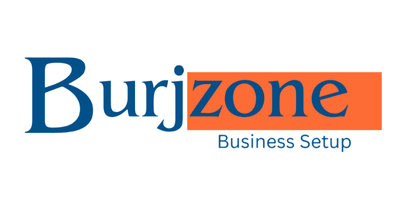Our Blog
Home / Blog
Corporate Tax in UAE Explained: What Dubai, Abu Dhabi & Sharjah Businesses Must Know in 2025
The introduction of corporate tax in the UAE marks a major shift in the region’s business landscape. While the UAE has long been known for its tax-free environment, the federal corporate tax law, implemented in June 2023, is now in full effect as we move into 2025. Whether you’re operating a mainland business in Dubai, a manufacturing unit in Sharjah, or a consultancy in Abu Dhabi, understanding corporate tax is critical for legal compliance and financial planning.
This guide outlines what UAE-based businesses need to know about corporate tax in 2025, including applicability, exemptions, rates, deadlines, and filing requirements.
1. Why Corporate Tax Was Introduced in the UAE
The UAE introduced corporate tax to align with global standards, promote transparency, and prepare for a diversified, post-oil economy. It also supports the country’s commitment to the OECD’s Base Erosion and Profit Shifting (BEPS) framework and the global minimum tax initiative.
Corporate tax allows the government to:
-
Reduce reliance on oil revenue
-
Regulate business structures
-
Attract responsible foreign investment
-
Maintain its reputation as a compliant international financial center
2. Who Is Subject to UAE Corporate Tax in 2025?
Corporate tax applies to all UAE-based entities and some foreign businesses operating in the UAE.
Subject to corporate tax:
-
Companies licensed in Dubai Mainland, Abu Dhabi Mainland, and other Emirates
-
Freezone entities (unless they meet qualifying income criteria)
-
Branches of foreign companies
-
Partnerships and civil companies
-
Some foreign businesses with a UAE permanent establishment (PE)
Exempt from corporate tax:
-
Natural persons (individuals) unless conducting business under a license
-
Government entities and qualifying public benefit entities
-
Investment funds meeting specific conditions
-
Freezone companies with qualifying income under 0% tax regime
3. Corporate Tax Rates in the UAE (2025)
As of 2025, the corporate tax rates are structured as follows:
-
0% on annual taxable income up to AED 375,000 (to support small businesses and startups)
-
9% on income exceeding AED 375,000
-
15% for multinational corporations meeting the global minimum tax threshold (consolidated revenue over €750 million)
Example: A business in Dubai Mainland earning AED 800,000 annually will pay 9% tax on AED 425,000 (i.e., AED 38,250).
4. Key Corporate Tax Terms You Must Know
-
Taxable Income: Net profit after deducting allowable expenses
-
Financial Year: Usually aligns with the Gregorian calendar year
-
Tax Grouping: Allows multiple entities under common ownership to be taxed as one
-
Permanent Establishment (PE): Foreign businesses with significant presence in UAE
-
Qualifying Freezone Person: A freezone company eligible for 0% corporate tax on qualifying income
Understanding these definitions helps businesses in Sharjah, Abu Dhabi, or Dubai avoid costly mistakes.
5. Required Corporate Tax Filings and Compliance
All taxable persons must:
-
Register for corporate tax with the Federal Tax Authority (FTA)
-
Maintain proper books of accounts (minimum 7 years)
-
File annual corporate tax returns electronically within 9 months of financial year-end
-
Pay any due tax by the filing deadline
For example, if your financial year ends on 31 December 2024, your corporate tax return is due by 30 September 2025.
6. Freezones and Corporate Tax: What Changes in 2025?
Freezone businesses still enjoy 0% tax on qualifying income, but they must meet strict criteria, such as:
-
Having adequate substance in the UAE
-
Generating income from qualifying activities (e.g., trading with other freezones, export, R&D)
-
Not earning income from mainland UAE customers (unless taxed at 9%)
Failing to meet these conditions may result in the full 9% tax rate. This affects businesses in RAKEZ, Shams (Sharjah), JAFZA (Dubai), and others.
7. Penalties for Non-Compliance
Penalties for non-compliance are significant and include:
-
Fines for late registration
-
Penalties for late filing of returns
-
Additional tax assessments for misreporting
-
Suspension of licenses or visa quotas in some cases
Businesses in regulated areas like Abu Dhabi Global Market (ADGM) and Dubai International Financial Centre (DIFC) must be especially vigilant.
8. How to Prepare Your Business for Corporate Tax in 2025
Whether you’re a startup in Sharjah, an SME in Dubai, or a corporate branch in Abu Dhabi, follow these steps:
-
Register early for corporate tax
-
Hire an accounting or tax consultant for accurate filing
-
Ensure clean and audited financial records
-
Structure your business properly to reduce tax liabilities
-
Stay updated with FTA guidelines and changes
Engaging a qualified tax consultant in UAE can save time, reduce risk, and help optimize your tax position.
Corporate tax is here to stay—and in 2025, compliance is not optional. For businesses across Dubai, Abu Dhabi, Sharjah, and other Emirates, understanding the rules, preparing early, and maintaining accurate records will ensure smooth operations, avoid penalties, and build financial credibility. Whether you’re a startup or a multinational, proactive tax planning is now an essential part of doing business in the UAE.
#CorporateTaxUAE #UAEBusinessTax2025 #DubaiCorporateTax #AbuDhabiTaxLaw #SharjahBusinessTax
#TaxConsultantDubai #FTAComplianceUAE #MainlandVsFreezoneTax #UAECompanyTaxGuide #UAEFinance2025
